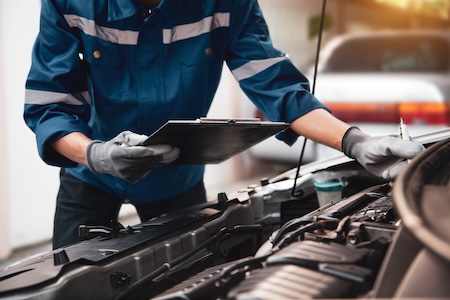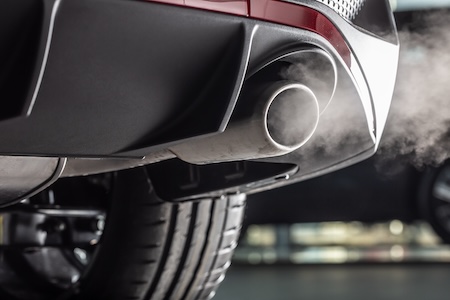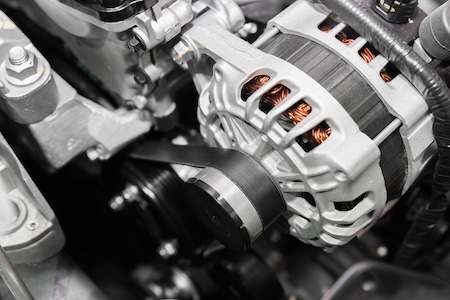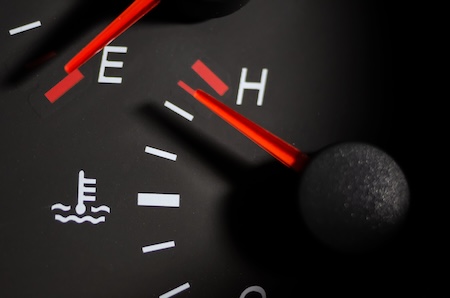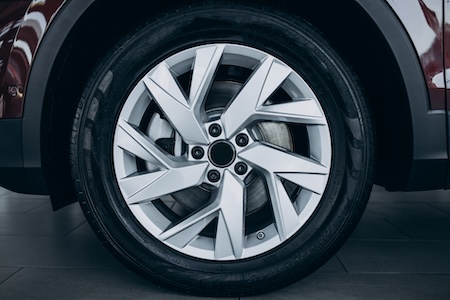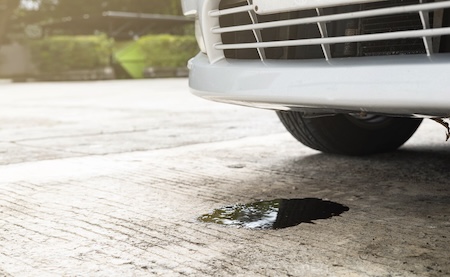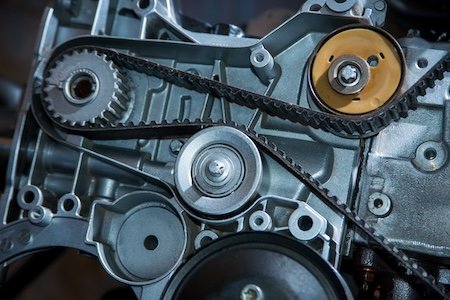When’s the last time you checked in on your car? Not just when something went wrong, but just to see how it was doing?
Most of us are reactive when it comes to vehicle maintenance. We wait for the thunk, rattle, or flashing dashboard light before we take action. But here’s the truth: those repairs didn’t start today. The signs were there, you just didn’t see them … because no one looked.
That’s where regular inspections come in. And they’re more important than you think.
The True Cost of Skipping Inspections
We see it all the time here at our shop: drivers come in with an urgent issue that could have been fixed for minor cost … weeks ago. Now it’s an expensive job because the problem has grown.
Regular inspections are your car’s early warning system. They catch the silent troublemakers, like low fluid levels, worn belts, or tire damage, before they become wallet-draining disasters.
Just a few examples of what regular inspections can prevent:
- Replacing worn brake pads can turn into a more expensive rotor replacement job.
- Adding more coolant instead of repairing engine damage.
- Noticing tire tread issues rather than waiting for a blowout.
Think these kinds of things don’t happen daily? Think again.
According to a AAA report, roadside breakdowns are largely avoidable with preventative maintenance. Yet more than one-third of Americans skip or delay service repairs.
They tow more than 600,000 a year due to transmission failure. They tow 235,000 due to brake failure. Even running out of gas – AAA delivered fuel to more than half a million vehicles, even though our modern-day cars come with low-fuel indicators.
Following your manufacturer’s guidelines for auto repair can go a long way in preventing future problems. Then, bring it into a trusted service station, and your car can continue operating well for years.
What’s Included in a Vehicle Inspection?
Our comprehensive inspections cover the major systems that keep your vehicle safe, smooth, and efficient. Here’s what we typically look at:
Brakes
- Pad thickness, rotor condition, fluid levels
- Look for squeaks, pulsations, or reduced stopping power
Fluids
- Oil, transmission, brake, power steering, coolant, washer
- Leaks, contamination, or low levels
Tires
- Tread depth, pressure, sidewall integrity
- Uneven wear patterns (often indicate alignment issues)
Belts and Hoses
- Cracks, fraying, or hardening
- Especially important in extreme Colorado temps
Battery and Charging System
- Corrosion, voltage output, terminal condition
- Avoid getting stranded with a dead battery
Suspension and Steering
- Shocks, struts, ball joints, bushings
- Does the vehicle feel bouncy or loose?
Lights and Wipers
- Burned-out bulbs, cracked lenses, worn wiper blades
- Crucial for safety and visibility, especially in snowy conditions
You don’t need to be a mechanic to benefit from this. It’s about peace of mind. It’s about knowing your car is good to go when you turn the key.
Why This Matters More in Denver
Colorado’s weather and terrain put extra stress on your vehicle. Between temperature swings, steep mountain drives, and rough city roads, things wear out faster than you’d expect.
- Winter Cold: Thickens fluids, drains batteries, and causes brittle rubber parts to crack
- Summer Heat: Overheats engines, warps rotors, and wears belts faster
- Elevation and Hills: Make engines and brakes work harder, especially heading into the foothills
- Potholes and Road Salt: Throw off wheel alignment, damage suspensions, and accelerate rust
Regular inspections help you catch these region-specific risks before they derail your plans. Or your wallet.
When Should You Get an Inspection?
You don’t need to wait for a dashboard light or a funny sound. Make inspections a part of your normal routine:
- Every oil change (3,000–5,000 miles)
- Before a long road trip
- At the start and end of winter
- When you notice performance changes (e.g., strange smells, new vibrations, slower starts)
If your car is older or high mileage (100,000+ miles), inspections become even more critical. Small leaks and wear-and-tear add up faster as vehicles age.
Inspections Aren’t Just for Mechanics, They’re for Drivers Who Plan Ahead
When was the last time you went to the dentist for a checkup? You don’t go because your teeth hurt; you go so they stay healthy. Same logic applies here.
Waiting until your car breaks down on the side of I-25 isn’t a good practice. It’s expensive, especially if it happens during rush hour, in bad weather, or on a weekend when towing and emergency repair rates spike.
A 30-minute inspection could mean the difference between a smooth week, or missing work, paying for a tow, or replacing a blown engine.
Not All Inspections Are Equal
We don’t do quick glances or 5-minute visual checks, yet tell you we performed a thorough check. We’ll tell you if everything is okay – or if you have potential issues. Then, we’ll let you know. It will include:
- No-pressure conversations about what’s urgent and what can wait
- Experienced, ASE-certified techs who know what to look for
We’re a local, family-owned shop. That means we care about building relationships, not just replacing parts.
A Small Investment in a Long-Term Relationship
Regular car inspections aren’t just about protecting your engine or your wallet. They’re about keeping your life running smoothly. You have school pickups, work commutes, weekend adventures, and grocery runs. You rely on your car every day.
Let’s make sure it’s reliable.
- Stop problems before they start.
- Extend the life of your vehicle.
- Drive confidently, knowing what’s going on under the hood.
Ready to Save?
Whether you’re due for your next oil change or haven’t had a checkup in a while, schedule your vehicle inspection today. We’ll treat you like family, and your car like it’s our own.
We proudly serve the Denver community with honest, reliable, expert care.
Book your inspection today.

